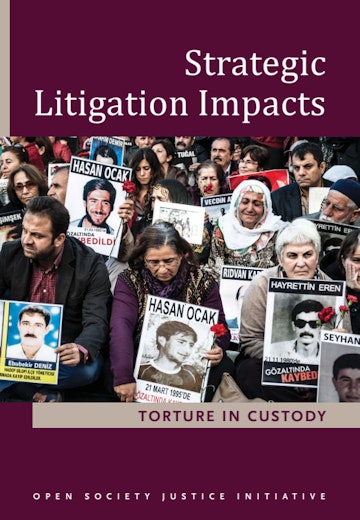Strategic Litigation Impacts: Torture in Custody
The prohibition of torture is one of the most widely known and thoroughly protected human rights. International law prohibits torture under all circumstances, everywhere, without exception. Yet at least 141 countries are still practicing torture today.
Strategic litigation is one of many tools being used increasingly by human rights advocates to bridge the gap between theory and reality and give practical effect to the protections promised by international law. These protections are especially important for people held in custody: prisons, police stations, and other detention facilities are often a breeding ground for torture.
Litigation has been a central response to torture in custody. This comparative study looks at how human rights activists in Argentina, Kenya, and Turkey have sought to use the courts to secure remedies for victims and survivors, bring those responsible to justice, and enforce and strengthen existing legal frameworks. Their experience shows that progress against torture is possible, but rarely straightforward. Litigators and their allies have won reparations for victims, secured accountability for perpetrators, and forced governments to acknowledge abuse. But they have also suffered retaliation, including being detained and tortured themselves.
This study—the fourth in a five-volume series examining the impacts of strategic litigation—considers the promise and peril of using litigation against torture in Argentina, Kenya, and Turkey. In so doing, it offers insights, grounded in experience, into the use of strategic litigation to combat torture in custody.
Topics
- Climate Justice
- Digital Rights and Fair Elections
- Discrimination and Racial Justice
- International Crimes
